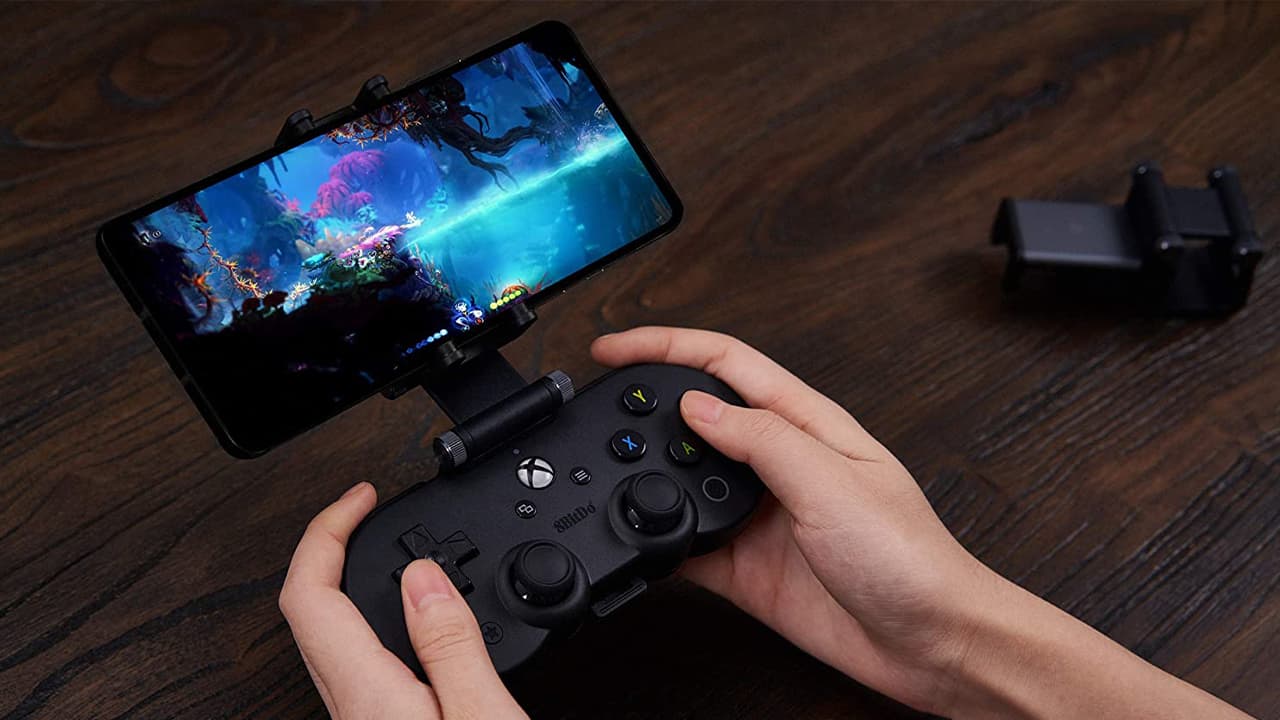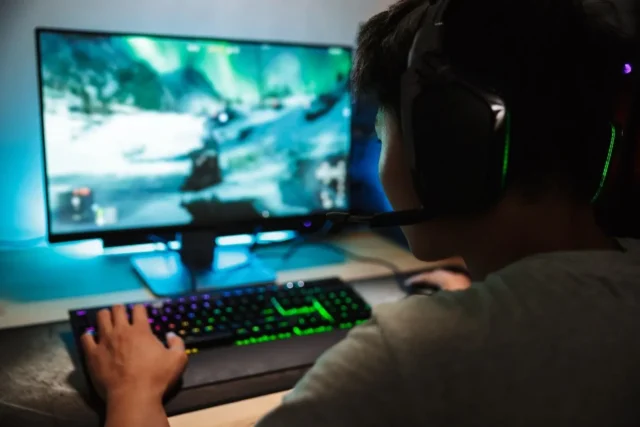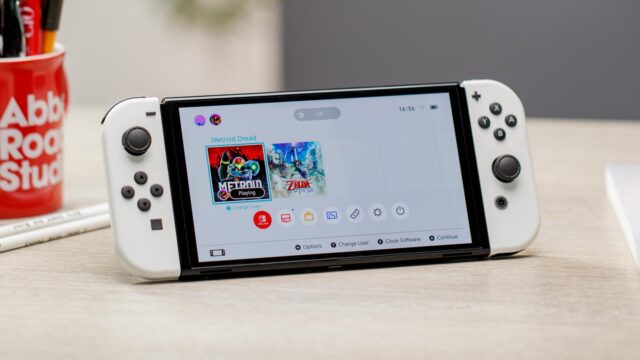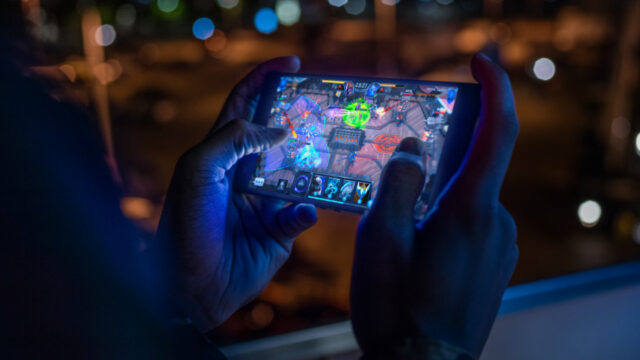
With the wide adoption of technology and the many gadgets entering every home, it seems that one can play video games on just about anything. It can often feel like everyone plays games now, it is only a question of what they are using for it. It probably shouldn’t come as too much of a surprise though since more than 50% of the populations of major economies like the United Kingdom and the United States are gamers.
However, for as long as there have been gamers, there have been players emotionally tied to whichever platform or device they prefer that are willing to debate fiercely with the fanboys and fangirls from a rival system. It is so big that it has a very ominous name, the console wars.
The debate has, traditionally, raged between the different brands of consoles, such as PlayStation vs. Xbox, but you can also find plenty of PC gamers willing to argue that computers are the ultimate machine for playing games on. PC gamers referred to themselves as the “PC master race” so it is safe to say they care about it too!
But which one of these groups is right and is any of them objectively right? Are consoles better than computers? Are PlayStations better than Xbox consoles? Or is there another option that trumps them all? How good are handheld consoles really and can they measure up to the rest of the pacK?
Computers

Computers are one of the most popular choices for people that want to play games, partially because almost everyone already owns one. Of course, the three-year-old workstation you use for work isn’t going to cut it playing titles like Crisis, but it will handle less resource-intensive games like Solitaire and Candy Crush with no trouble.
A captive market isn’t the only reason though. Many other factors draw people into playing on a computer.
Firstly, PC gamers have more choices than those that use any other device. In addition to the hundreds of AAA titles that are released on most platforms each year, they have access to a huge catalog of browser-based games.
These are games that are played through a web browser like Google Chrome or Mozilla Firefox and usually require just basic specifications and an internet connection. They can include a wide range of options from MMORPGs like Runescape to simple puzzles like Wordle.
PC owners can also enjoy a wide selection of online casino games through their web browsers, with major brands operating in a growing number of US states as well as many other countries. In recent years, demand for these games has grown so large that sites like OddsChecker have sprung up to help players find the best no-deposit bonuses.
On top of these options, computer owners have access to the vast libraries offered by platforms like Steam as well as a back catalog of games from several decades of releases that likely totals more than a million individual titles.
It’s not just the huge choice of games though, PC gamers have more flexibility. With a gaming laptop, they can enjoy their favorite titles on the go while desktop owners can choose a specification that suits their needs and budget while also customizing their case to make it fit their taste and personality.
Gaming PCs can be more expensive if you splash out on the most expensive components but this needn’t always be the case. However, there are definitely cheaper options if you’re looking to enjoy the hobby on a budget.
Consoles

Consoles have traditionally been designed to be cheaper and less powerful than computers but have used custom architecture to make up for this. This is why the original PlayStation could be picked up for just $299 in 1994 while an entry-level PC would have cost at least five times that much.
Over the years, the price difference between consoles and computers has narrowed somewhat as the current generation of machines from Sony and Microsoft cost around $599 while a gaming PC can be bought or built for around two or three times as much.
Part of the reason for this is that consoles no longer contain the cheap and cheerful hardware they once did. To make the portability of games easier for developers and to allow them to make the most of the hardware right out of the box, they have essentially become glorified PCs. Still, they can never directly compare at any given moment because even the above-average PC will have stronger hardware and more options than the current generation of consoles.
Both the PS5 and Xbox Series S/X run on the AMD x64 architecture and use modified GPUs found in computers. They are still cheaper though, a gaming PC of similar spec would cost much more than $599.
This makes console gaming much cheaper, at least in upfront costs. However, players have much less choice when it comes to the games they can play. It’s all relative though as there are still more than enough options for almost everyone to not run out of things to play.
Consoles are also typically easier to get set up. You just need to plug it in, turn it on, and load up the game you want to play. There’s no worrying about virus software, configuration, or device drivers.
Mobile Devices

A newer entry to the debate about which device is best for gaming is mobile devices. Smartphone and tablets have been one of the drivers of the increased popularity of gaming among the general population with many people getting their first taste of the hobby on one of them.
While consoles are cheaper than computers, mobile gaming is often cheaper again because most people won’t need to buy anything new. Almost every smartphone sold within the last five years is capable of handling nearly all the titles available in the Apple App Store and Google Play Store.
Mobile gaming is also easier. Since most smartphone users are already familiar with the process of downloading, installing, and running an app from their respective marketplace, they don’t need to learn anything new.
In just a couple of taps, they can be up and running, enjoying whichever game their heart desires.
While early mobile games were quite simple, they’ve become much more advanced in recent years as hardware has grown more advanced. Now, players can enjoy titles like Call of Duty and Fortnite on their iPhones and OnePlus devices, with a very similar experience to what they get if they played it on a computer or console.
The gap between smartphones and other devices is shrinking even more too. Streaming platforms like Google Stadia allow players to enjoy AAA titles on the underpowered hardware of a phone by having the heavy-lifting done on the platform’s servers instead.
So while each platform offers its own pros and cons, mobile devices may actually offer the best of both worlds.









